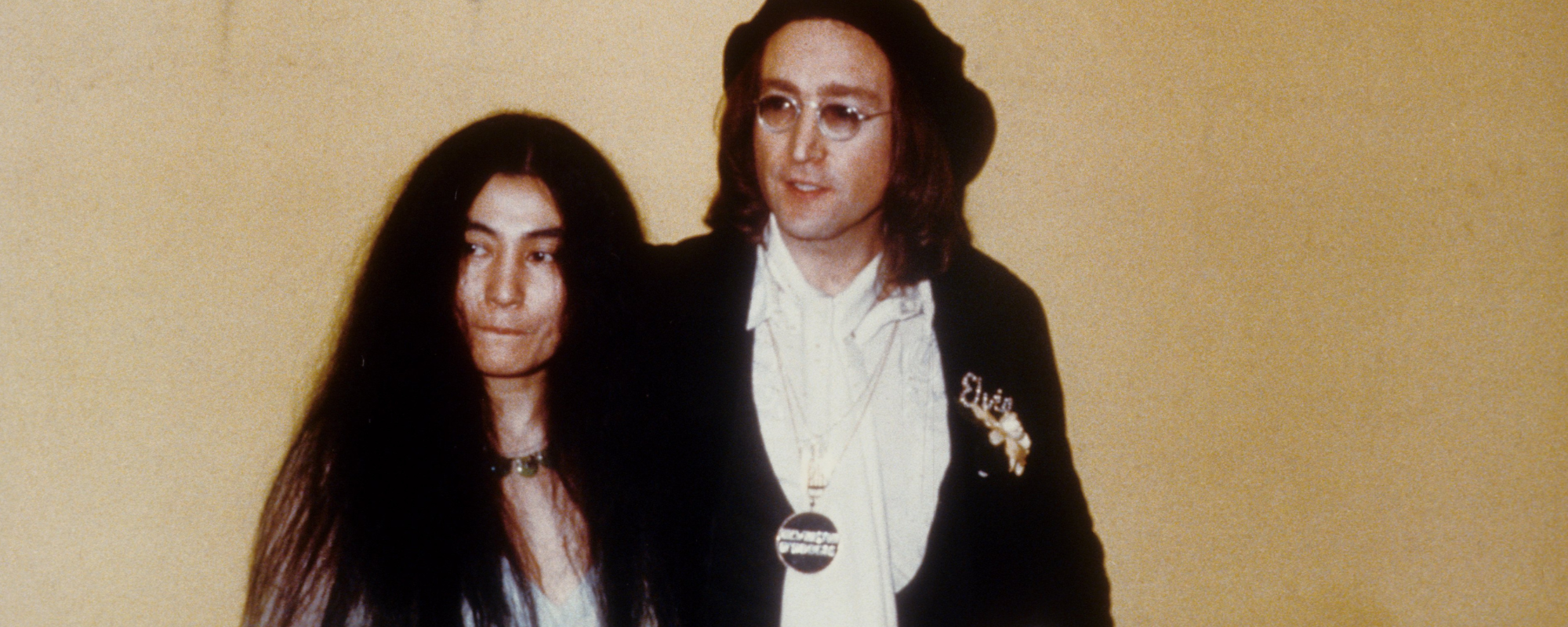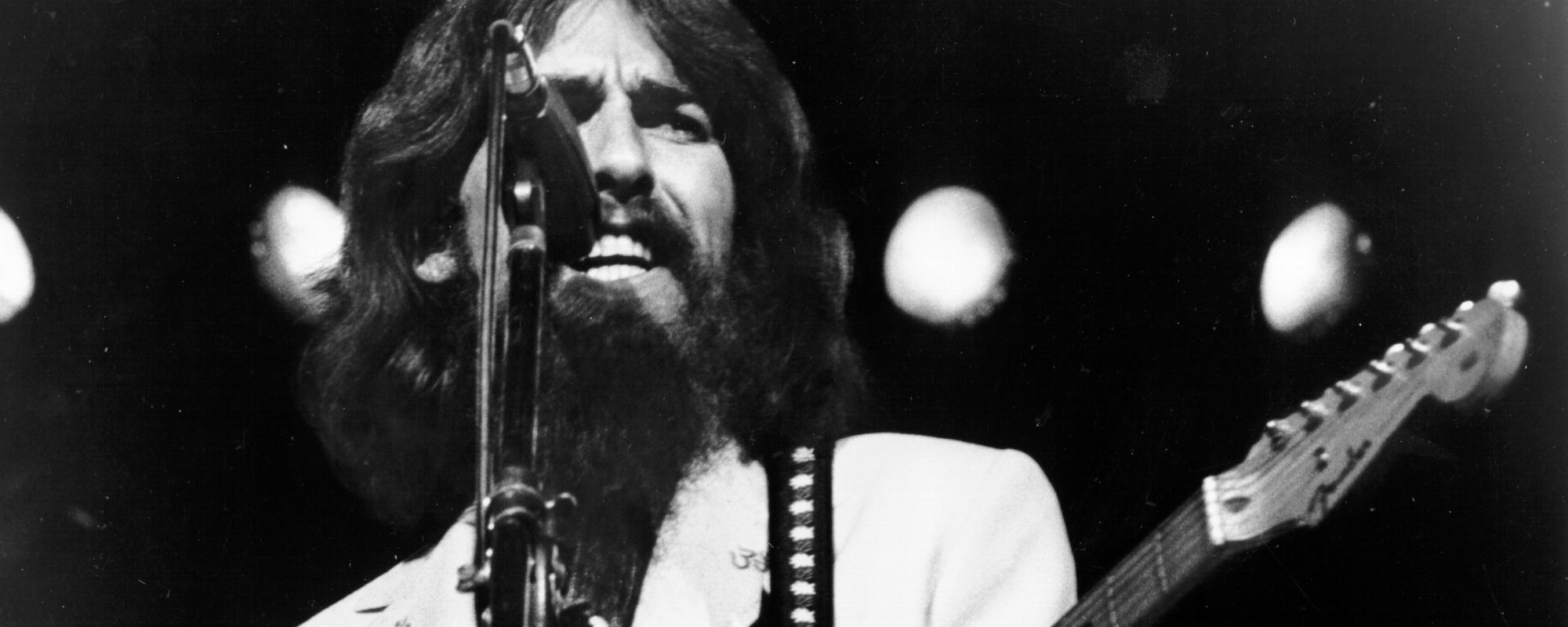From the other side of the world, Crowded House frontman Neil Finn flashes a relaxed smile. He’s on a video chat from Melbourne, Australia, to discuss the band’s eighth studio album, Gravity Stairs, released May 31 via BMG. “It’s good to have it out and existing in the real world instead of in the layers of our subconscious,” he says.
Videos by American Songwriter
For Finn, the album title’s meaningfulness is twofold: “There is a real set of stairs, in a place where we regularly go on holiday, that is extremely hard to get up—it may have something to do with the fact that we’ve been down at the tavern for a little bit longer than we should have,” he says with a laugh. “But it’s a metaphor, I suppose, for the extra bit of endurance that you need to ascend to the same height, as time goes on and you get older. We always will try and get up those stairs, with suitcases in tow, or our guitars, but we’ll always get up there.”
This optimism is evident in the songs themselves, which have a distinctly uplifting vibe. Finn says that was deliberate, and he hopes listeners will notice. “We were really conscious of trying to make an outgoing record. We didn’t want to wallow in any kind of too-reflective state, too-self-conscious state, given the whole world is both anxious and just emerging from a strange state of isolation via the pandemic.”
And yet, he adds, “I’m always attracted to a tinge of melancholy or yearning in the songs. Pure exuberance is not common in a Crowded House song, [though] there is the odd exception.”
This unusual dichotomy of achingly beautiful music paired with often dark lyrics has been a striking feature of Crowded House songs since the band formed in 1985. It’s even evident in their biggest hits, such as “Don’t Dream It’s Over,” “Something So Strong,” and “Better Be Home Soon.”
“The way that I approach lyrics has always been to try and identify lines that accompany the melody and the chords with a feeling and a suggestion, rather than creating a narrative that is making sense from beginning to end,” Finn says. “I don’t know what every line means in relation to every [other] line, but people tell me later what they mean, and I get some lovely surprises. They’ll mention a line that I was slightly worried about that didn’t seem to make sense in the thread. So what are you going to do? You’ve got to leave some mystery in it so that people can find their own pathway.”
Despite his tendency to employ a certain obliqueness with his words, Finn occasionally writes a song with a more literal bent. One example is the latest single from Gravity Stairs, “Oh Hi.” Finn wrote the track to bring attention to So They Can, a nonprofit organization that helps build schools in Kenya and Tanzania. As a longtime supporter, it seemed only natural that Finn should lend his songwriting skills to help this cause.
“The woman who runs the charity asked if I would ever write a song for them, and I was working on ‘Oh Hi’ when she asked me that,” he says, “and I went, ‘This song could really work with that sentiment attached to it.’ I wanted to make a fairly clear attachment to the idea that these kids are magnificent—and they’re out of view of us, the Western world, which kind of runs things, still. There’s some kind of weird unease in the world, and I think that those huge resources of Africa and a lot of other parts of the world that seemingly are out of view are where the answer might come. And it’s certainly where the consequences are being felt the most.”
Usually, though, Finn’s songwriting process is much less linear. The more typical pattern, he says, is that “I’m squirreled away in my little writing room in Auckland, just making stuff up every day for a good few hours. Often, I don’t get off to a roaring start. It sometimes takes a little while to get the cogs to start turning. I always try to keep it in a playful state at that early stage and not get too hung up on what I’m writing about—just trying to get a few things to stick, and then wait for things to suddenly announce themselves.”
Finn knows he’s on the right track when something he writes makes him feel something. It can be a small thing that triggers this, “a couple of really good lines that just fall out and they open up a door. Sometimes it’s just me singing nonsense. Sometimes it’s just me making an atmosphere out of guitars and keyboards, perhaps. There’s some thread or some essence there that seems worthy and important. I’ll follow a whisper of an idea, and it will become a concrete idea at the end of the day.”
He’ll evaluate what he’s written the next day to see if it still seems like a promising idea. Even if he isn’t as enamored with it by that point, though, he doesn’t view it as a complete waste. “There’s usually some little thread that is good about it, even if I didn’t go in the right direction,” he says.
Whenever he hits upon a seemingly good idea, he immediately makes a demo recording of it. “It’s a glorious moment when you’re at the end of the day and you’ve made a little demo and it’s got something. It’s just this really joyful thing of knowing that this thing now lives, it exists, even if you’re the only one in the world that knows about it. That’s a beautiful feeling.”
Sometimes, he’ll even make three or four different demos of the same idea, adding parts and rearranging things for each version, until he finds the one that works best. “I’ve become more and more attuned to that method as the years go on. I trust it, even though at times it feels like you are operating in a pretty vague sort of way.” But, he adds, “I’ve got enough years in doing this that I trust the process and I’ll push on through to the other side.”

At this point, Finn will bring the song to the rest of the band, and they’ll work together to refine it—although, he admits, hearing the material in this setting sometimes inspires him to make radical changes instead. “I’ll realize that, actually, the structures are not right, so I’ll start chopping it up. I’ll embrace the process of destroying a part that I’ve worked on for a long time and just throw it away. It’s really liberating.”
Though Finn has always been Crowded House’s main songwriter, the current iteration of the band allows him to give other members significantly more input in this regard. The lineup currently consists of Finn, longtime bassist Nick Seymour, keyboardist Mitchell Froom (who’s best known as a producer, including working in that capacity on Crowded House’s first three albums), and Finn’s multi-instrumentalist sons, Liam and Elroy.
“Mitchell Froom coming back in as a player, rather than a producer, is just a golden asset for me to have. The familiar things that he brought have got echoes in the first few records, which is nice,” Finn says. “Nick’s bass playing is quite distinctive—he never does things quite the way I want him to do it, and so it makes it better. He’s always got a little bit of a different slant on things, and it opens up the song a little bit with another angle that I wouldn’t have thought of. And my sons are accomplished writers. It seems to be working really well.”
Finn says that allowing the others to contribute to the songwriting process “just means everybody walks into the rehearsal room with a good sense of assurance that what they do matters or counts in the band. That’s what a real band should feel like.”
Finn realized at an early age how special it can be to belong to a band. Growing up in Auckland, New Zealand, he admired his older brother Tim, who had formed the New Wave band Split Enz in 1972. “It seemed incredibly exciting, and I wanted to be a part of that,” Finn recalls.
In 1977, he got his wish when he joined Split Enz after proving he was an excellent guitarist, pianist, and singer/songwriter in his own right—so much so, in fact, that he eventually assumed the role of main songwriter and co-lead vocalist. Split Enz became popular in New Zealand, Australia, the UK, and North America, scoring a string of hits in the early 1980s with “I Got You,” “One Step Ahead,” “Six Months in a Leaky Boat,” and “Message to My Girl.”
Split Enz disbanded in 1984, and Finn formed Crowded House the next year. The group’s 1986 self-titled debut album was immediately successful, achieving platinum sales in multiple countries. Since then, the band has continued to enjoy a loyal worldwide following. They have won more than a dozen ARIA Awards (the Australian equivalent of the Grammys) and were inducted into the ARIA Hall of Fame in 2016.
Even with that impressive track record, though, Finn makes it clear that he’s focused on the future of this iteration of Crowded House, especially as Gravity Stairs nears its release date. “I’m really grateful for the opportunity to keep making records,” he says. “That was always what we said to each other in the early days: ‘Well, if we could just get to make another record…’ That’s the bottom line. And I’ve been able to do that—plus, at various points, have a good measure of success. Certainly, a lot of people tell me how much the songs mean to them. So I couldn’t be happier with the results. The journey has been tremendous.”
Main Image of Crowded House Courtesy of Crowded House












Leave a Reply
Only members can comment. Become a member. Already a member? Log in.